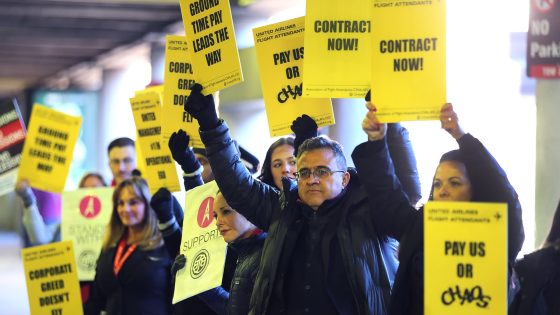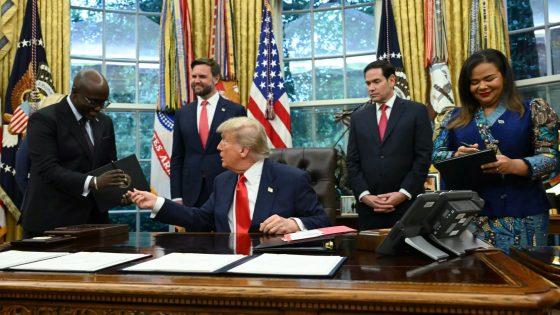United Airlines flight attendants are making headlines as they picketed outside Terminal B at Logan Airport, advocating for a new contract. On July 29, 2025, the flight attendants voted against a proposed labor agreement that included immediate raises of at least 26% and other quality-of-life enhancements.
- United Airlines flight attendants picketed at Logan Airport.
- New labor contract proposed 26% immediate raises.
- Last raise for flight attendants was in 2020.
- Union rejected agreement for insufficient benefits.
- Flight attendants seek better wages post-pandemic.
- Union president emphasized years of sacrifice.
This rejection highlights ongoing tensions within the airline industry, where U.S. flight attendants have been pushing for wage increases for years. The last raise for United’s flight attendants occurred in 2020, and the airline had reached a tentative agreement with the Association of Flight Attendants-CWA in May.
Ken Diaz, president of the union’s United chapter, stated that the vote sends a clear message to management about addressing the sacrifices made by flight attendants. What does this mean for the future of labor negotiations in the airline industry?
The rejection of the contract raises questions about labor relations in the airline sector worldwide. Will other airlines face similar challenges as they negotiate with their employees? This situation underscores broader Trends in labor movements across various regions.
- In Europe, airline staff are also demanding better pay and conditions.
- Asia-Pacific airlines are observing these developments as they prepare for post-pandemic recovery.
- Middle Eastern carriers may need to reassess their labor strategies to avoid similar unrest.
As the airline industry navigates these challenges, stakeholders must engage in meaningful dialogue to ensure fair treatment and sustainable practices. Will this lead to a more equitable future for airline employees globally?

































